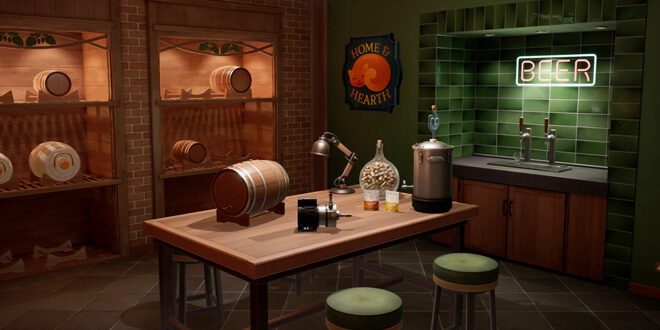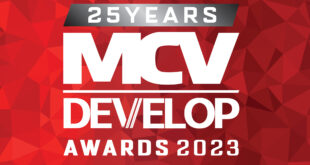 by Peter Willington, production director at Auroch Digital
by Peter Willington, production director at Auroch Digital
Auroch Digital’s production director Peter Willington shares insight into how the research journey of a project can help contribute to its success.
In 2022, we released Brewmaster: A Beer Brewing Simulator. It’s performed really well for our studio in a number of ways – it’s had our highest ever percentage of positive reviews on Steam, a great player base on Discord and awesome sales.
Whilst its success has been thanks to the hard work of so many teams across the studio, it has also been in-part down to how the development team embarked on a mighty research journey to ensure an authentic experience for our players. Our studio prides itself on making games that relate to and deal with real-world issues – so ensuring our games feel real and grounded in whatever universe they exist in is hugely important to us. Whether we’re perfecting the mechanics of space exploration or becoming experts in the depths of Warhammer lore – immersion in the subject matter is vital.
RESEARCH METHODS
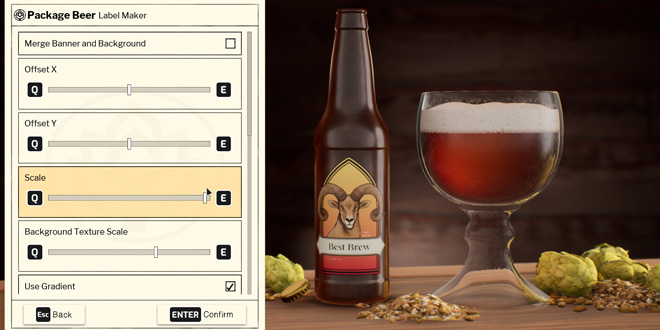
It doesn’t matter if your game is grounded in the world we live in or in a far-off universe with its own rules, the research process is crucial. A great summation of research can be found in Ed Catmull’s book, Creativity Inc, in which the co-founder of Pixar (and later the President of Walt Disney Animation) shares insight into how dining across France influenced Ratatouille’s famous kitchen scenes. They weren’t striving to create a kitchen full of unrealistic harmony and perfection, they wanted to show it as it appeared in life: beautiful culinary chaos.
But this use of reflection in more fantastical works indicates another interesting area of research: immersion. We know that fans of sci-fi and fantasy series’ know their stuff and are on the lookout for the small details they know and love, so whenever we work on something in this genre we’re keen to get an understanding of everything and dive as deep into the lore as we can to create a setting and story that feels as authentic as possible.
When it came to Brewmaster, we knew we had a challenge ahead. The craft brewing industry is massive – bigger than any of us realised when we started this project. As such, we had a relatively short period of time (the game was developed over three years) to learn, digest and understand a never-ending area of expertise, built upon thousands of years of brewing knowledge.
EXPANDING YOUR HORIZONS
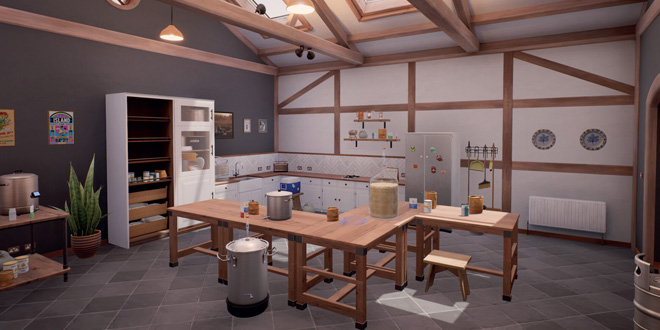
The famous phrase ‘you don’t know what you don’t know’ really hits home when researching for your game. Once you start diving into your subject matter, there’s no end of rabbit holes to fall down… so you might as well embrace them!
For the longest time, I’d assumed ‘beer culture’ was a singular thing – people (often men), drinking lager in a pub. This assumption would have led us to create a very different game, with a different demographic which would have been more focussed on the results of drinking the beer rather than the magic of crafting it.
Instead, we discovered that beer culture is as varied and nuanced as the beers themselves and deepened our understanding through research: attending beer festivals where high-end beer buffs were on the hunt for the new and outrageous, met with local makers who were out championing their region or community, listened to lectures and poured over reference material. It even encouraged us to put on our big coats and head down to our local pub to re-affirm how these spaces act as a communal location for anyone and everyone and are vital to the communities they serve.
Another result of this process was going back to school; myself and the team decided we’d go on the Certified Beer Server course and exam from Cicerone – the awarding body of beer qualifications (who knew!). Every single thing we thought we knew about beer was turned on its head and totally subverted our expectations, but above all it brought us together as a team and gave us a universal language to speak with one another.
While referring to ‘how dark’ a beer is might seem fine to everyday consumers, the further into this journey we got the more we realised that people really know their stuff and there was no chance we were going to be able to fake it. We had to not only talk the talk but walk the walk.
Perhaps most humbling of all was the realisation that, try as we might, we were never going to make everyone happy by offering the same gameplay experience to all. Beer styles overlap, there are different methods by region for creating beer and there are lots of areas which are always up for debate within the brewing community. Realising this allowed us to make a change to how you perform a taste test in the game – players can input the style they were aiming for, rather than have Brewmaster make the choice for you. A decision which has been praised by our players.
TEAM BUILDING
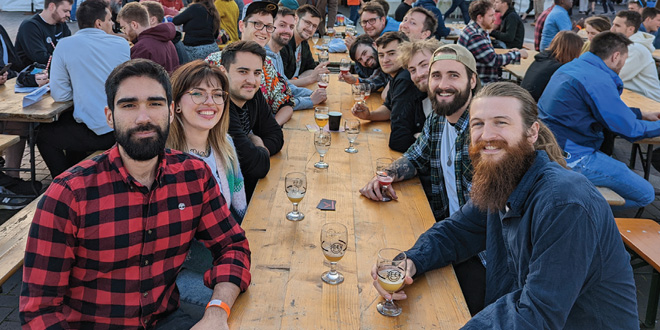
Whilst many of our assumptions around beer and drinking culture were proven wrong, we did discover that something remained true: sitting in a pub on a Thursday evening is a wholly unifying experience.
I must stress that throughout the project, we wanted people to take the research to a level they felt comfortable with and being a beer fan (or even a drinking fan) was not an expectation to work on the game. Even if team members could join once or twice during development to enjoy a soft drink with their colleagues, it still brought us together in a way we hadn’t before. It expanded beyond the development team too: we work remotely but a lot of our folks are based in Bristol and the surrounding area, so the invitation was always open for anyone from across the studio to join in on our get-togethers.
In these informal settings, we were able to talk as human beings rather than as developers and discover more about who we are outside of work. I got to know my team on a whole new level, from their habits to their favourite game, to where they take their dog walking at the weekend and what plants they’re growing on their kitchen windowsills.
I know not all games are about making craft beer, and not all research processes involve tasting a lot of beers – and I mean a lot, someone drank over 500 beers during the course of our two-year development… responsibly, of course. But even without trips to breweries, going to events dedicated to brewing and visits to the local – the research process can bring a team together.
GET CREATIVE WITH YOUR RESEARCH
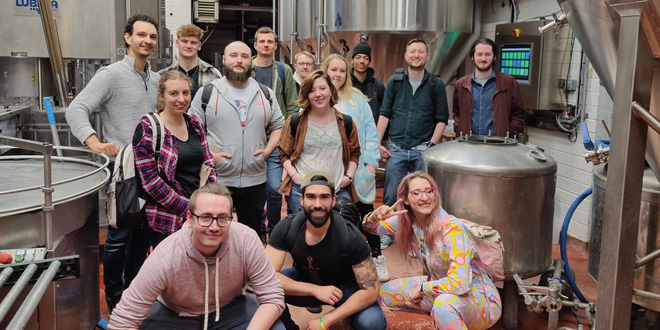 Our research took us to a lot of unlikely places, but it also brought us closer to our neighbours. We’re a Bristol-based studio and under our noses was The Moor Beer Company – a brewery based in our hometown which does great things with live, natural and vegan beers. By strengthening our knowledge of brewing, we were able to form a partnership with them that saw us creating our very own recipe: the Auroch Digitale.
Our research took us to a lot of unlikely places, but it also brought us closer to our neighbours. We’re a Bristol-based studio and under our noses was The Moor Beer Company – a brewery based in our hometown which does great things with live, natural and vegan beers. By strengthening our knowledge of brewing, we were able to form a partnership with them that saw us creating our very own recipe: the Auroch Digitale.
If it hadn’t been for our research trips, lectures and tasting sessions, our lead designer Matt would never have created the recipe for this beer in his kitchen and had the confidence to deliver it to ACTUAL brewers who then created a batch (which, to our surprise, sold out very quickly).
We’re in a fortunate position at Auroch in that we have the 100-per-cent backing of our studio heads when it comes to putting the hours into research, but I know that isn’t the case for all studios. It can be almost impossible to quantify the return on investment for research and for a team to fully embrace all of its benefits – it’s hard to justify it with numbers on a spreadsheet to a sceptical audience.
If this sounds familiar, don’t panic! There are creative ways you can undertake thorough research in your development process. I’d advise doing as much research as possible without requiring investment from leadership. You can discover free resources like audiobooks, lectures or podcasts online, consume media in that area wherever you can and identify common themes, or – if you think there’s a case to be made – put on your ‘cost saving’ hat when pitching for research investment and identify that money could be saved later down the line if research helps you get it right the first time.
It’s a tricky business but getting your research process down can help you create a game that feels authentic and players can feel the passion that went into it. Cheers!

 MCV/DEVELOP News, events, research and jobs from the games industry
MCV/DEVELOP News, events, research and jobs from the games industry
